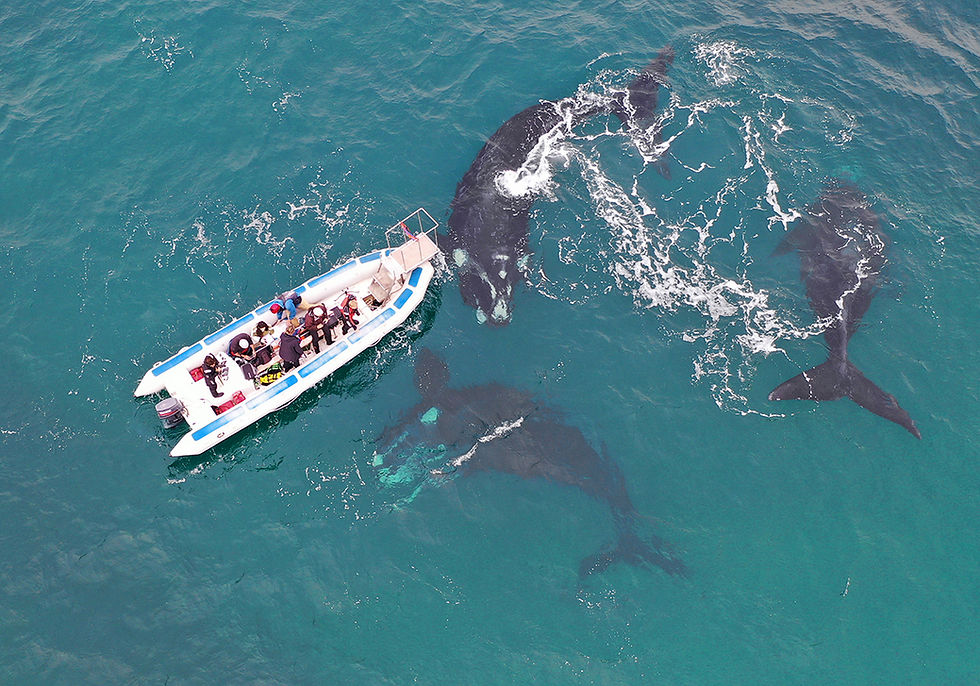Argentine deep-sea expedition captivates millions with live ocean extraordinary discoveries
- Editorial Team SDG14

- Aug 20
- 3 min read
Updated: Sep 1

In a rare convergence of cutting-edge science and public fascination, an Argentine-led deep-sea expedition has drawn unprecedented global attention, proving that the wonders of the natural world still have the power to unite and inspire. The Underwater Oases of Mar Del Plata Canyon: Talud Continental IV campaign, conducted in partnership between Argentina’s National Scientific and Technical Research Council (CONICET) and the US-based Schmidt Ocean Institute (SOI), has become a daily rendezvous for hundreds of thousands, sometimes over a million, viewers on YouTube.
Broadcast live from the depths of the South Atlantic Ocean, the expedition offers an uninterrupted window into the rarely seen world of the Mar del Plata submarine canyon, located off Argentina’s Buenos Aires Province. Deploying the state-of-the-art remotely operated vehicle ROV SuBastian from SOI’s research vessel RV Falkor (too), scientists are reaching depths of nearly 3,900 metres, exploring fragile ecosystems shaped over millennia.
The project seeks to map biodiversity hotspots, study environmental DNA, and better understand the geological and ecological dynamics of one of South America’s least disturbed deep-sea regions.
What has surprised even the organisers is not just the scientific success of the mission, but the extraordinary level of public engagement. Live-streamed dives, showing ghostly bioluminescent jellyfish, the whimsical “Dumbo” octopus, vibrant starfish, and elusive deep-sea crabs, have captivated audiences far beyond Argentina’s borders. For many viewers, these images are not simply curiosities; they are a profound reminder of the fragility and complexity of Earth’s most remote ecosystems.

The expedition also arrives at a politically charged moment. Argentina’s scientific community, and CONICET in particular, has faced significant funding cuts in recent years. For researchers, the viral attention underscores the public’s appetite for knowledge and its willingness to support meaningful exploration when given direct access to its results. As Dr. Andrea Capurro, a marine biologist involved in the mission, noted in an earlier statement, “People protect what they understand, and they understand what they see.”
Founded by former Google CEO Eric Schmidt and Wendy Schmidt, the Schmidt Ocean Institute operates with the mission of advancing oceanographic research through global collaborations, cutting-edge technology, and open-access data sharing. By partnering with CONICET, Argentina’s leading research institution, this project blends local expertise with world-class resources, proving that international scientific cooperation can deliver both rigorous knowledge and public inspiration.
In professional terms, the Talud Continental IV expedition is a model of how modern science can serve multiple audiences: generating high-value datasets for academic and policy use, while simultaneously fostering global environmental awareness. The visual immediacy of the live-streams breaks down barriers between the research community and the public, turning passive observers into engaged participants in the story of our planet.
This moment offers a broader message. In an age dominated by headlines of crisis, whether environmental, economic, or political, there remains a deep, untapped capacity for collective wonder. The popularity of this mission is not a fleeting curiosity; it is evidence of an awakening. Across cultures and continents, people are showing they care about what happens in the farthest reaches of our world. And in that renewed curiosity lies a powerful tool for conservation, education, and long-term planetary stewardship.
The Mar del Plata Canyon dives are scheduled to continue through mid-August, with all sessions available live and on-demand via the Schmidt Ocean Institute’s official YouTube channel. Each descent is a reminder: the ocean is vast, fragile, and inextricably linked to human survival.
Through science, technology, and public engagement, this Argentine-led expedition is not just mapping the sea floor, it is mapping a path toward a more informed and inspired relationship with our planet.
More information: https://schmidtocean.org/
Youtube credits: https://www.youtube.com/@SchmidtOcean



